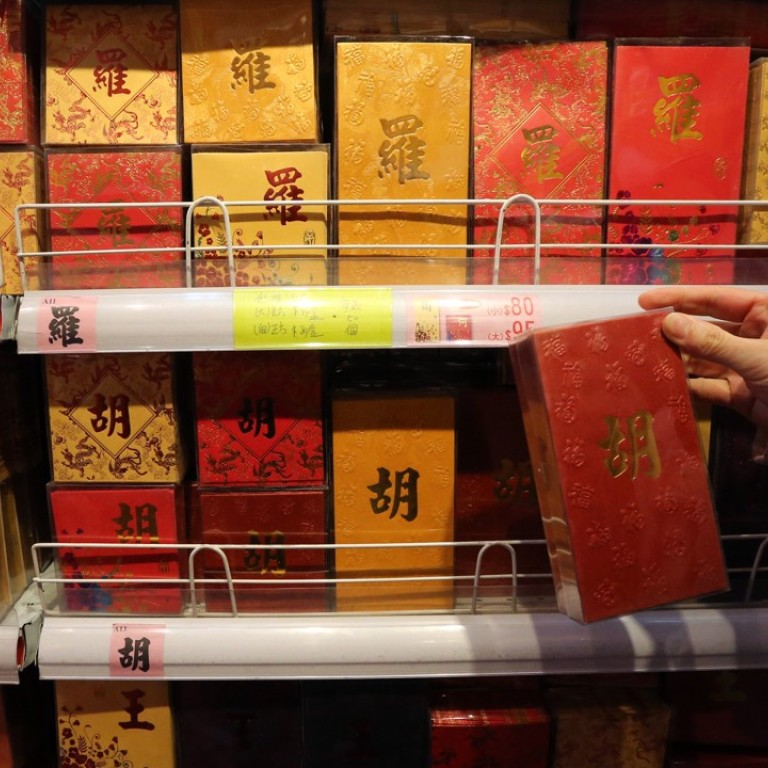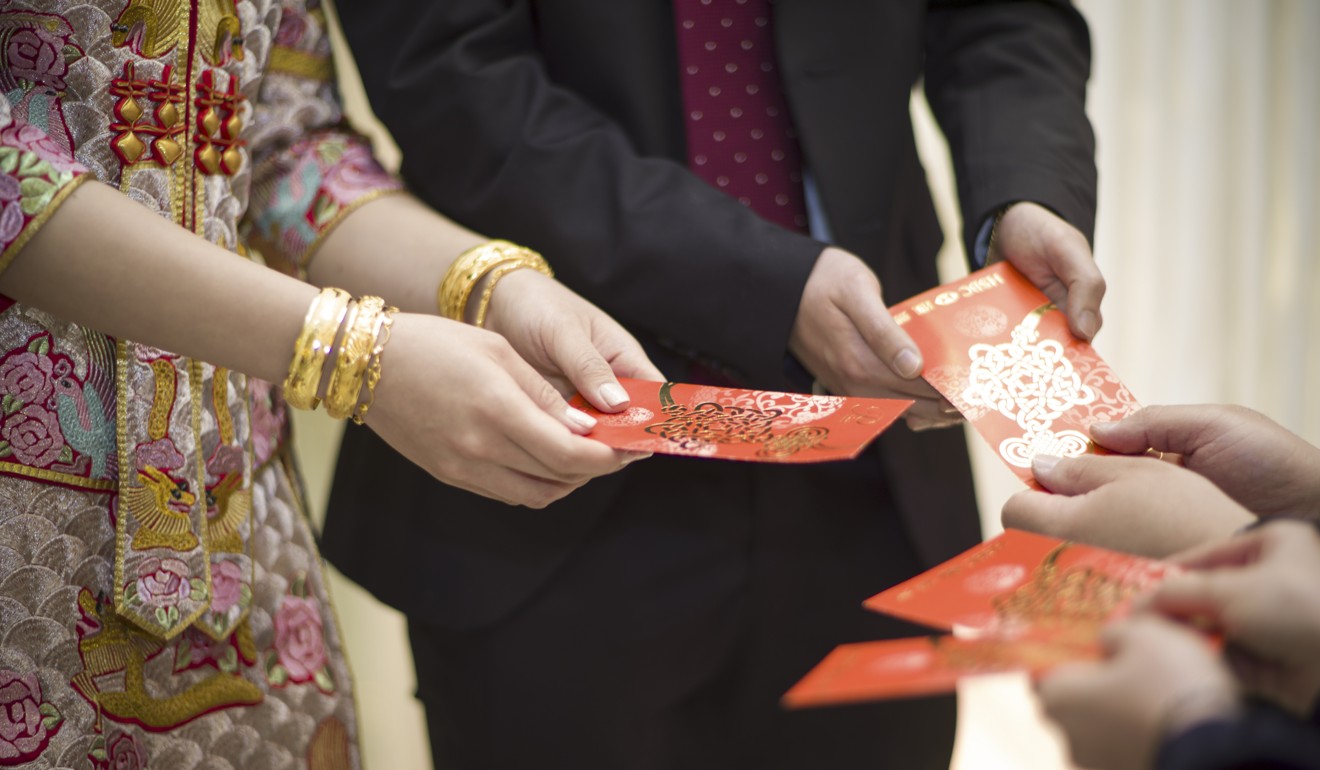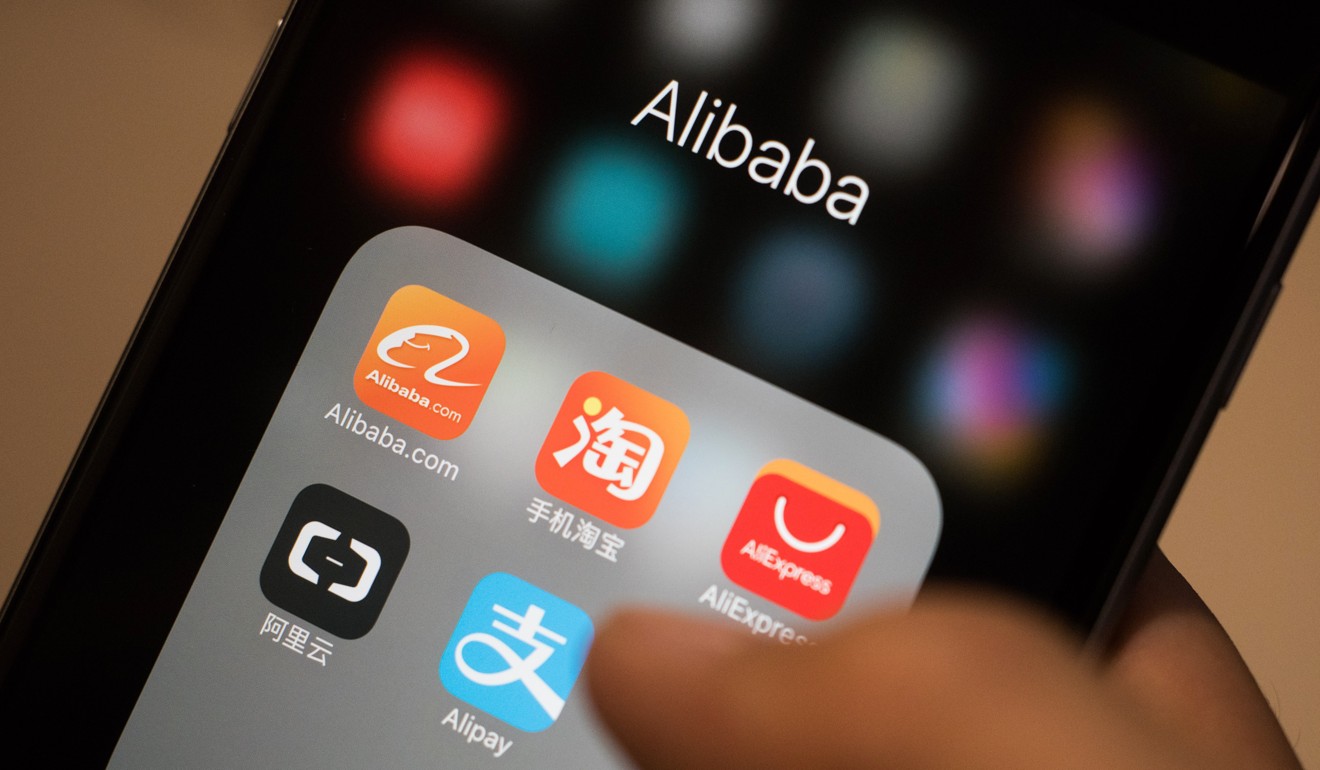
Popularity of electronic lai see grows but cash is still king in Hong Kong for lucky money
Firms including Octopus Cards and HSBC offer digital red packets and while some users are enthusiastic others are a bit more sceptical
More Hongkongers are expected to dole out lucky money digitally this Lunar New Year as banks and e-payment operators cash in on a growing trend of electronic lai see.
But there is still scepticism over whether the practice can enter the mainstream.
“We’ve seen the popularity of digital red packets growing and we’re delighted to be able to offer our customers a simple, fun way to send and receive e-lai see this year through PayMe,” Andrew Eldon, HSBC’s head of digital for retail banking and wealth management, told the Post.

Hong Kong slow to go cashless? Blame success of Octopus card, minister says
Octopus Cards’ new e-lai see service, available until March 23, allows “customised” virtual red packets to be sent in different amounts and quantities.

It is customary in mainland China, Hong Kong and Chinese communities elsewhere for people to dish out red packets filled with “lucky money” on auspicious occasions such as birthdays, weddings and during the Lunar New Year – which begins on Friday and lasts for two weeks.
Office worker Eva Hui Yuk-yee, in her 30s, will be dishing out e-lai see for the second consecutive season after trying it out last year via WeChat Pay, which promoted its use by offering users cash rebates.
“I am forcing my friends to receive e-lai see this year,” said Hui, who has set a target to give out 10 per cent of her lai see this holiday in digital form, mostly to friends and their children.
“I hate the pollution caused by [physical] red packets and new bank notes.”
According to environmental group Greeners Action, about 320 million new red packets – equivalent to 16,300 trees – are doled out during the Lunar New Year every year, with most packets ending up in landfills.
Meanwhile, about 200 million crisp, fresh notes are printed during the season to meet demand each year.
I am forcing my friends to receive e-lai see this year. I hate the pollution caused by [physical] red packets and new bank notes
Greeners’ executive director Angus Ho Hon-wai said that he supported the habit of giving e-lai see “in principle” as it helped reduce paper waste but conceded that there would be many challenges to taking it mainstream, not least because of tradition but also because of personal data security concerns.
“It’s easier for mainstream use in the mainland than in Hong Kong, as data privacy issues are more of a concern among the public here,” he said. “The focus for our campaigns has always been on reducing [use], reusing and recycling red packets.”
The Monetary Authority said it encouraged the public to continue supporting the use of good-as-new notes for lai see. It did not keep statistics on the distribution of e-lai see.
“We will continue to monitor the market development and demand for electronic lai see,” an authority spokeswoman told the Post.
Apart from the green factor, Hui said it also saved effort and time inserting and removing bank notes from paper packets and for recipients, counting the cash and banking it. “It’s also less troublesome and safer as you don’t need to bring that much money around in your purse.”
A cashless society would destroy our privacy and freedom
She admitted that it would be hard to set the trend in conservative Hong Kong.
“It’s a bit difficult to encourage people to use it, especially the older generations as they are not quite used to e-wallets. It takes a lot of time and effort to teach them and encourage them but still some will refuse to learn. Some insist in following traditions, but I believe traditions can be changed.”
Housewife Celina Fung, 57, said she was all for new practices but felt tradition still trumped technology.
“I still think it’s strange for everyone to be fiddling with their phones just for an exchange of lai see. What if that person doesn’t have a smartphone or the app?” she said. “Also, I think having physical cash in hand is still a better feeling.”
There is some empirical evidence for this.
Cash is dead as small businesses opt for e-payment in China’s digitalisation drive
According to a recent survey by market researcher Lightspeed Research, 98 per cent of respondents in Hong Kong said a real lai see envelope remained their No 1 option, similar to respondents in Taiwan, Malaysia and Singapore. But only 70 per cent of mainland respondents felt the same way.
About 80 per cent of respondents on the mainland said they would choose to send red packets via WeChat, compared to less than 10 per cent in Hong Kong.
“Traditional red packets are undergoing an evolution in mainland China whereas Hong Kong, Singapore and Malaysia remain more traditional,” the company said.

